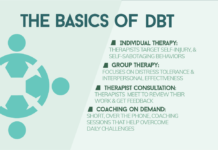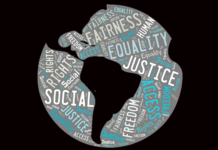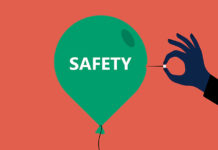David Foster Wallace: Suicide and the Death of Agency
Today is the 10th anniversary of David Foster Wallace’s suicide. While it’s not fair to build an entire theory on an incredibly complicated issue like suicide around one person, Wallace’s death should challenge the common narratives around suicide — that “mental illness” causes it and that “we can’t ever know why people do it.” Both of these are self-serving platitudes that are simply not true.
Suicide in the Age of Prozac
During the past twenty years, the American Foundation for Suicide Prevention and American psychiatry have adopted a "medicalized" approach to preventing suicide, claiming that antidepressants are protective against suicide. Yet, the suicide rate in the United States has increased 30% since 2000, a time of rising usage of antidepressants. A review of studies of the effects of mental health treatment and antidepressants on suicide reveals why this medicalized approach has not only failed, but pushed suicide rates higher.
Berlin Manifesto for Humane Psychiatry Released
Changing the mental health and psychosocial support system in Germany requires public debate about the ways our society should help and support people in mental crisis and with chronic mental health problems. We believe the driving force behind all help and support should be humanitarianism and respect for inalienable human rights.
New Study Casts Doubt on Efficacy of Ketamine for Depression
A new study, published this month in the Journal of Affective Disorders, investigated the effectiveness of weekly intravenous ketamine injections as a treatment for...
Three Suicides: Honoring Lives Lost to Benzodiazepines
I am still trying to reconcile what these chemicals are capable of, how the urge can morph into an action, how we maybe just don’t understand suicide all that well. For me, the suffering was so intense it was too painful to stay alive. I understand how my friends felt in their last moments.
Victim Blaming: Childhood Trauma, Mental Illness & Diagnostic Distractions?
Why, despite the fact that the vast majority of people diagnosed with a mental illness have suffered from some form of childhood trauma, is it still so difficult to talk about? Why, despite the enormous amount of research about the impact of trauma on the brain and subsequent effect on behaviour, does there seem to be such an extraordinary refusal for the implication of this research to change attitudes towards those who are mentally ill? Why, when our program and others like it have shown people can heal from the effects of trauma, are so many people left with the self-blame and the feeling they will never get better that my colleague writes about below?
Researchers Search for Subgroups Where Antidepressants Are More Effective
The researchers theorized that this increased effectiveness was due not to “antidepressant” properties, but rather to the drug’s side effects, which include insomnia, drowsiness, and nausea.
Ioannidis Questions Strength of Psychology and Neuroscience Literature
Last week, well-known Stanford scientist John Ioannidis and his colleague Denes Szucs released a new analysis online. They examined research published in eighteen prominent...
Has Evidence Based Medicine Been Hijacked?
John Ioannidis claims that the idea of evidence based medicine has been “hijacked to serve agendas different from what it was originally aimed for,” in a newly published critical essay in the Journal of Clinical Epidemiology. Ioannidis frames the essay as a continuation of a conversation with David Sackett, widely considered the founder of evidence based medicine.
Dialectical Behavior Therapy Reduces Self-Harm and Suicide Attempts
A new meta-analysis finds that DBT reduces self-harm, suicide attempts, and reduces the frequency of psychiatric crisis service utilization.
New Data on the Adverse Effects of Meditation and Mindfulness
Study reports on the less-examined findings of difficult and painful meditation-related experiences.
Prescripticide: A Proposal for Action and a Request for Your Help
The primary factor protecting psychiatry’s unwarranted power and authority is that it is perceived as shielding society from folks who are believed to be dangerous. It would seem, then, that one logical step toward reducing society’s trust in biological psychiatry would be to reveal the evidence of a significant correlation between the use of prescribed psychoactive drugs and the commission of violent acts against oneself or others.
Are Students Benefiting From the Growth Mindset Model?
Results from two meta-analyses reveal shortcomings with the growth mindset theory as applied in schools.
Study Investigates Long-Term Effects of Social and Emotional Learning Programs
Social and Emotional Learning (SEL) programs have gained popularity in U.S. schools in recent years. A new study examines the nature and longevity of their impact on students.
Mental Health in Black and White
When I looked through my mountains of medical records, I saw that the providers who listed my race as black applied diagnoses like major depressive disorder and PTSD. The providers who saw me as white preferred diagnoses of panic disorder and borderline personality disorder. Of course, my experiences are just anecdotal. But if racial bias due to subjective experiences of practitioners can play such a large role in mental health diagnostics, how is this even considered a scientific discipline?
What Does Social Justice Really Mean for Psychologists?
Without clarity and consensus around what social justice means, psychologists risk perpetuating injustices that undermine their stated mission.
Robin Williams On Antidepressant at Time of Suicide
Robin Williams had "therapeutic" levels of the tetra-cyclic antidepressant mirtazapine in his blood at the time of his suicide, according to the coroner's report...
ASIST Suicide Prevention Training: “Safe” for Who?
Ever since the cops and CPS were called on me by someone at an ASIST Suicide Prevention training, I've been trying to see it all as a gift. What better proof to counter those who claim it's "safe" to tell than what happened to me? What better evidence that our system responses are seriously off track? It wasn't safe. Not for me.
Dear Self-Proclaimed Progressives, Liberals and Humanitarians: You’ve Really Messed This One Up
When it comes to psychiatric diagnosis, I can be almost certain that anyone outside of my immediate field of work just won’t ‘get it,’ no matter where they stand on anything else. And not only won’t they get it; they will often actively be one of the unwitting oppressive masses, either through their inaction or worse.
Does a Psychiatric Diagnosis Have the Impact of a Medical Curse?
Over and over I've seen the aftermath of that ritual of receiving and internalizing a lifelong, pathologizing diagnosis. I don't think we can underestimate the uncanny power of receiving such proclamations about our personhood by people sanctioned by our culture to serve as arbiters of truth.
The Creativity and Suicide of Robin Williams: A Phenomenological Study
My purpose in writing this case study is not to suggest that creativity is a mere byproduct of trauma, or to deny the role of so-called mental illness in suicide, but to situate these phenomena within the context of human lives. To render them humanly (rather than medically) intelligible. With his mind and body disintegrating, Robin Williams took his life to thwart the eradication of self.
Suicide: A Permanent Solution to a Temporary Problem
Many people who have never been severely depressed might ask, “Why would anybody want to kill themselves?” After all, taking one’s life goes directly against the survival instinct that nature has programmed us with. For example, if you were walking across the street and saw a car coming towards you − your first instinct would be to jump out of its path. Yet, when the brain becomes overwhelmed with chronic, intense pain that seems to have no end, then suicide becomes not only a rational choice, but a compelling option. After all, if you are faced with the prospect of being in eternal hell, then taking your own life seems like an act of self-love, not an act of self-detruction.
Study Finds Heavy Metal Music Beneficial to Mental Health
A new study highlights the role heavy metal music plays in the mental health of adolescents facing adversity.
On the Link Between Psychiatric Drugs and Violence
One of psychiatry's most obvious vulnerabilities is the fact that various so-called antidepressant drugs induce homicidal and suicidal feelings and actions in some people, especially late adolescents and young adults. This fact is not in dispute, but psychiatry routinely downplays the risk, and insists that the benefits of these drugs outweigh any risks of actual violence that might exist.
Psychotropic Medications Serve as Powerful Tools for U.S. Military, Imperialism
Ethnographic research sheds light on extensive psychopharmaceutical use by soldiers in post 9/11 U.S. wars.




























